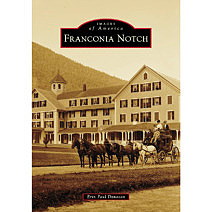2020 Human Impact, White Mountains – During these strange times, like many of you, I have been trying to stay safe and worrying about family and friends. I also have watched the New Hampshire White Mountains get trashed over the last few months. While human impact (overuse) is not a new problem here in the White Mountains, it has gotten much worse during the Coronavirus pandemic.
Being a native of New Hampshire, I hate seeing the White Mountains being treated so poorly. I have never seen such a lack of respect for nature. However, overuse has been a problem throughout the history of the White Mountains. And with the surge in outdoor recreation in the 21st-century, this was bound to happen again. And even in today’s conservation minded-society, there is still no easy solution to the problem.
When it comes to conserving our special places, such as the White Mountains, it takes the dedication and commitment of many people. The commitment part involves pushing personal agendas to the side and working together to achieve a common goal. In this case, the goal is to slow the current human impact issue in the White Mountains.
Being a responsible steward of the White Mountains involves more than promoting leave no trace principles, completing hiking lists, volunteering to do trail work, running hiking websites, and ranting on social media about trail etiquette. Hikers, including the experienced ones, have to also be willing to give up personal agendas and work together during the most crucial times for stewardship to be successful.
So could the New England peakbagging* community help slow down the current overuse issue? It's no secret that peakbagging is partly responsible for the increase in human impact in the mountains. What if peakbaggers stopped peakbagging (a personal agenda) for the betterment of the White Mountains? It wouldn’t be permanent, just until things cool down.
To help alleviate the current overuse, some peakbaggers have willfully stopped peakbagging. So is a group effort that far fetched? If the peakbaging community and all of the organized and unorganized** groups that promote peakbagging in someway collectively work together, it could make a difference. Just imagine if 1000s of peakbaggers didn’t pursue hiking lists on any given day during this current overuse issue.
Getting list driven hikers to postpone personal agendas for the well being of the White Mountains might be a tough sell. But the current increased use of the White Mountain National Forest is not sustainable, and if something isn’t done to slow the human impact down, the White Mountains will look very different in the future.
Established in 1918, the creation of the White Mountain National Forest is the direct result of people working together. It will take a group effort to conserve the Forest in the 21st-century.
Happy image making..
*Peakbaggers are a subgroup of the hiking community. And while this blog article focuses only on this group, they are not responsible for all of the human impact.
**Unorganized hiking groups are the social media pages, forums, and websites (hiking blogs, peakbagging lists, hiking reports, etc.) that are run by hikers. These groups are not established businesses or organizations.
Connect with us on Facebook | Historic Information Disclaimer | Purchase Our EB&L Railroad Book
Owner of ScenicNH Photography LLC
Erin Paul is a professional photographer, writer, and author who specializes in environmental conservation and historic preservation photography mainly in the New Hampshire White Mountains. His work is published worldwide, and publication credits include: Appalachian Mountain Club, Appalachian Trail Conservancy, Backpacker Magazine, and The Wilderness Society. He has written two photo history books about the White Mountains: the East Branch & Lincoln Railroad (2018) and Franconia Notch (2024).






Hi there, and greetings from Berlin, ?? Germany.
I am dreaming of large forests and clean air and came to the right place.
What is peakbagging exactly? Is it the collection of the scaling the state mountains in NH ? In Scotland the call this munro bashing or bagging.
Why is this an issue, as long as people leave no trace behind.
Hi Daniel, “Peakbagging” is hiking mountains that are on a hiking list. Here in the New Hampshire White Mountains, there are a number of hiking lists that hikers can hike. Some of these hiking lists are governed by organized groups, while others are run by hikers.
The huge surge in "peakbagging" in the 21st-century is creating more impact to the trail system and to the area; more trail erosion, more trash along the trails, more damage to historical sites, more damage to rare alpine plants in the alpine zones, etc.